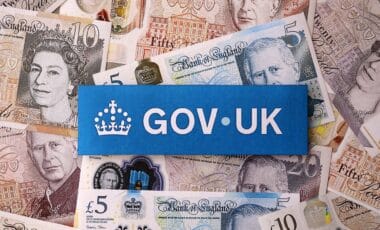Millions of DWP claimants will soon notice an increase in their regular benefit payments as part of the annual uprating process. The increase is designed to help those receiving state benefits keep up with the rising cost of living. With inflation continuing to impact everyday expenses like food and utilities, the government has made adjustments to Universal Credit, Housing Benefit, Income Support, and Employment and Support Allowance to help claimants avoid falling further behind financially.
This annual adjustment, while helpful, continues to spark ongoing debates about whether these increases are truly enough to cover the costs of essentials. Many claimants, particularly those on Universal Credit, have been vocal about the insufficient levels of support, especially in light of the rising costs of living. Research by organisations like Trussell Trust and the Joseph Rowntree Foundation (JRF) reveals that even with uprating, Universal Credit and other benefits fall short of meeting the basic living standards for many households.
Exact Date DWP Claimants Will See Extra Payments
From April 7, the new increased rates will begin to take effect, marking the start of the new financial year. This will include:
- Universal Credit for a single person over 25 will rise from £393.45 a month to £400.14.
- Other benefits such as Housing Benefit, Income Support, and Employment and Support Allowance will also see similar increases.
The adjustment is in line with 1.7% inflation from last September and aims to help benefit recipients keep up with the rising costs of everyday essentials. However, many claimants continue to highlight that even with these adjustments, they still struggle to cover basic expenses.
Concerns Over the Adequacy of Universal Credit
Despite the increases, there are growing concerns over whether Universal Credit is truly enough to live on. Iain Porter, senior policy adviser at JRF, pointed out that a large proportion of those on Universal Credit are working but still in poverty. He explained:
“Many people receiving Universal Credit are working, but employment doesn’t protect them from going without essentials like food, heating and vital household bills. Around two-thirds of working-age adults in poverty are in a working household.”
Research by the JRF has revealed that the basic rate of Universal Credit falls far short of what is needed to meet the costs of food, utilities, clothing, transport, and other essential costs. For many, it’s simply not enough.
What to Expect in April
Claimants should expect to see the new payment amounts reflected in their bank accounts from April 7, the start of the new financial year. These increases will be a welcome adjustment for many, particularly given the rising inflation and the soaring costs of energy, food, and other essentials. The changes, which include increases to Universal Credit, Housing Benefit, Income Support, and Employment and Support Allowance, will provide some relief to those already struggling to make ends meet.
However, the uprating has been met with mixed reactions. While it aims to offset the effects of inflation, many critics argue that the increases are still insufficient for meeting the true cost of living. The Joseph Rowntree Foundation and other advocates for low-income households have long pointed out that Universal Credit remains far below what is required to cover basic living expenses such as food, clothing, utilities, and transport.
For many, the 1.7% increase simply doesn’t go far enough to keep up with rising prices. Those on Universal Credit are often left with just £91 per week after essential costs, which continues to fall short of what’s needed for a basic standard of living. Despite the new rate, advocates warn that these changes still highlight the inadequacies in the welfare system and urge further action to ensure claimants are not left struggling.









